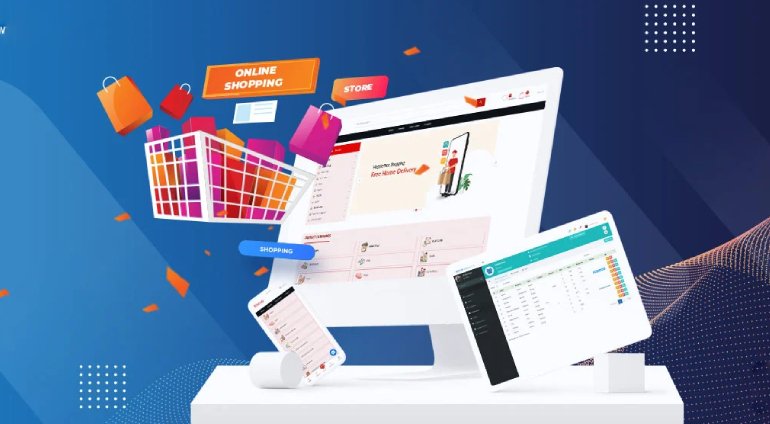Ecommerce Solution

Ecommerce Solution
An ecommerce solution refers to the comprehensive set of tools, software, and services that enable businesses to establish and manage an online store. It includes various components that facilitate the entire process of selling products or services online. Here are key aspects of an ecommerce solution:
- Website Platform:
- The foundation of an ecommerce solution is a robust website platform. Businesses can choose from various ecommerce platforms such as Shopify, WooCommerce (WordPress), Magento, BigCommerce, and others. The platform provides the infrastructure for building and managing the online store.
- Product Management:
- Ecommerce solutions allow businesses to easily add, update, and organize products or services on their online store. Product management features include options for setting prices, managing inventory, and categorizing products.
- Shopping Cart:
- A secure and user-friendly shopping cart is essential for a smooth purchasing process. It allows customers to add products to their cart, view their selected items, and proceed to checkout.
- Checkout Process:
- The checkout process involves a series of steps where customers provide shipping information, choose payment methods, and confirm their orders. A streamlined and user-friendly checkout experience helps reduce cart abandonment.
- Payment Gateway Integration:
- Ecommerce solutions integrate with payment gateways to facilitate online transactions securely. Popular payment gateways include PayPal, Stripe, Square, and others. The integration ensures that customers can make payments using various methods, including credit cards and digital wallets.
- Security Features:
- Security is a critical aspect of ecommerce solutions. SSL certificates and secure payment gateways are essential to protect customer information and ensure a safe online shopping experience.
- Mobile Responsiveness:
- With the increasing use of mobile devices for online shopping, ecommerce solutions must be mobile-responsive. The website should provide a seamless and optimized experience on smartphones and tablets.
- User Account Management:
- Customers can create accounts to track orders, save preferences, and facilitate a quicker checkout process in the future. User account management features also include password recovery and account customization options.
- Order Management:
- Ecommerce solutions include order management tools to help businesses track and fulfill orders efficiently. This may involve order status updates, shipment tracking, and inventory management.
- Shipping and Tax Calculation:
- Ecommerce platforms often provide tools for calculating shipping costs based on various factors such as location, weight, and shipping method. Additionally, the solution should support accurate tax calculations based on applicable regulations.
- Integration with Third-Party Services:
- Integration with third-party services, such as email marketing tools, analytics platforms, and customer relationship management (CRM) systems, enhances the overall functionality of an ecommerce solution.
- SEO Optimization:
- Ecommerce platforms should support SEO best practices to ensure that product pages and the overall website are optimized for search engines. This includes customizable meta tags, clean URLs, and other SEO-friendly features.
- Customer Support Features:
- Customer support tools, such as live chat, contact forms, and frequently asked questions (FAQs), contribute to a positive customer experience. Some platforms also offer integration with customer support software.
- Analytics and Reporting:
- Ecommerce solutions include analytics and reporting features that help businesses track key metrics such as sales, conversion rates, and customer behavior. This data is valuable for making informed business decisions and optimizing marketing strategies.
- Scalability:
- A good ecommerce solution should be scalable to accommodate business growth. Whether a business is just starting or expanding, the ecommerce platform should be able to handle increased traffic, products, and transactions.
- Updates and Maintenance:
- Regular updates and maintenance are essential to keep the ecommerce solution secure, up-to-date, and compatible with the latest technologies and industry standards.